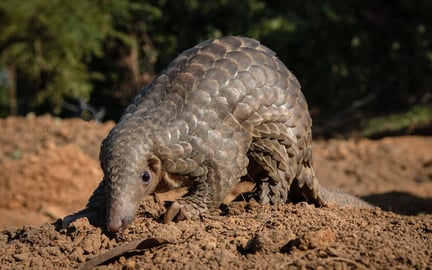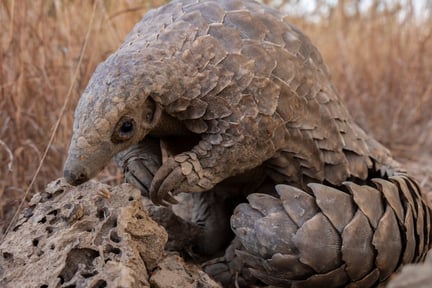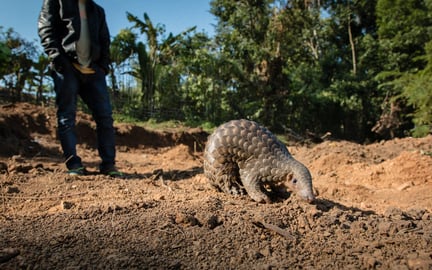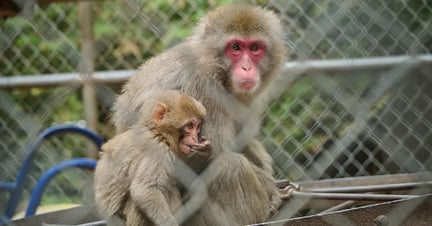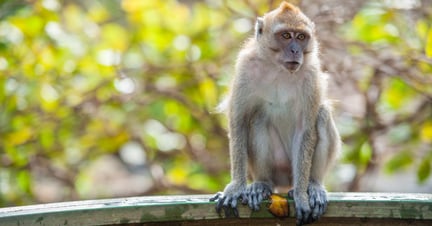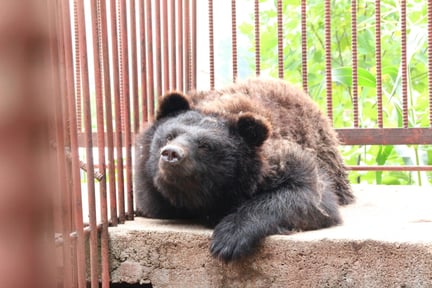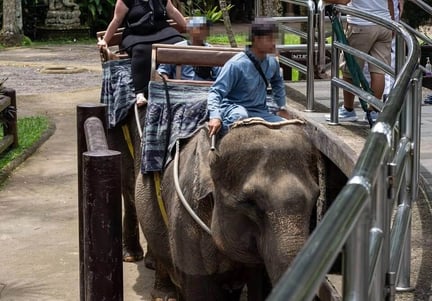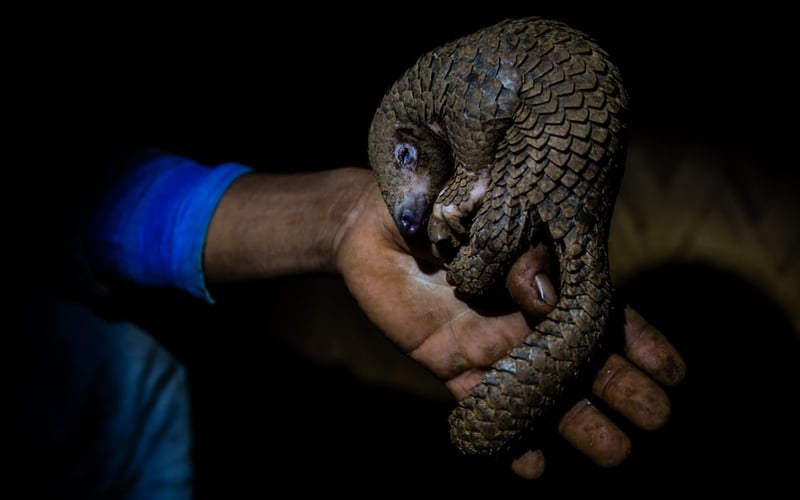
New research exposes TikTok’s role in the illegal wild meat trade in Togo, putting pangolins and other endangered species at risk.
An investigation by World Animal Protection has revealed that endangered wildlife is being openly sold through TikTok in Togo, West Africa.
Researchers found traders based in the capital, Lomé, using the social media platform to advertise and sell dead wild animals, including the endangered white-bellied pangolin.
The study, conducted between November 2022 and April 2024, examined 80 videos from two public TikTok accounts. These videos featured more than 3,500 carcasses of smoked wild animals, including at least 130 white-bellied pangolins.
Failing legal protections
The species is classified as Endangered by the International Union for Conservation of Nature (IUCN) and is protected under international law through a ban on global commercial trade.
Despite these legal protections, researchers found no evidence of enforcement on the platform. The videos reached nearly 1.8 million views, were liked over 53,000 times, and shared more than 6,000 times.
The most viewed video, which showed smoked pangolins, had been watched more than 216,000 times.
We are seeing social media becoming the new marketplace for endangered wildlife. It is easily accessible and massively unregulated, placing a direct threat to species' survival.
TikTok's current failure to enforce its own rules is giving traders access to global buyers and puts endangered species, like white-bellied pangolins, a few clicks away from extinction.
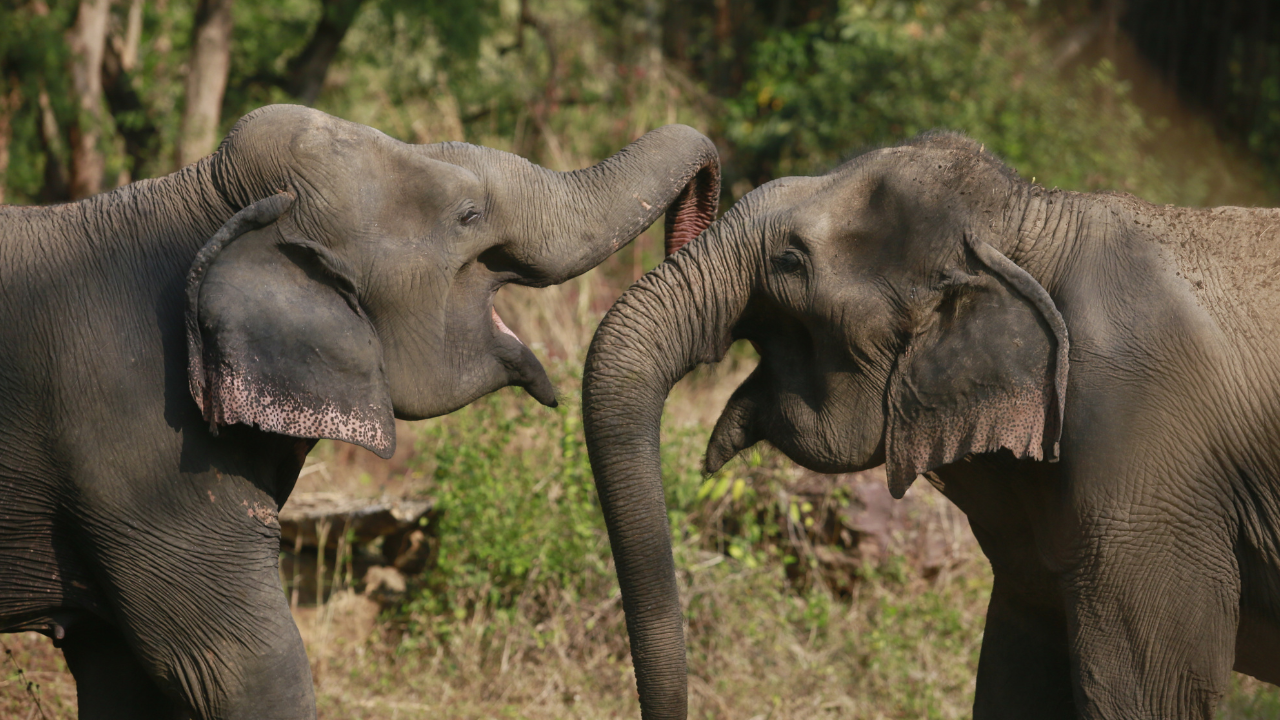
You can make a difference for vulnerable animals
Donate now
When you make a donation, you’ll join a passionate group of supporters who are determined to change the world for animals. We're fighting animal cruelty wherever we find it — are you with us?
Click to donateSocial media shifting the scale of the wildlife trade
TikTok's current failure to enforce its own rules is giving traders access to global buyers and puts endangered species, like white-bellied pangolins, a few clicks away from extinction.
The white-bellied pangolin, also known as Phataginus tricuspis, is one of the most trafficked mammals in the world.
Its meat and scales are used in some forms of traditional medicine, particularly across parts of Africa and Asia. Although international trade is banned, the study found that local and regional demand is now a growing driver of the wildlife trade.
Some TikTok videos encouraged consumers to choose wild meat for its taste or supposed health benefits, contributing to the normalisation of illegal activity.
Public health and animal welfare concerns
Alongside conservation risks, researchers warned of the public health dangers linked to the handling and consumption of wild animals.
Some of the species featured in the videos, including pangolins, rodents, mongooses and jackals, are known carriers of zoonotic pathogens. These diseases can pass from animals to humans and have the potential to spark future health crises.
Animal welfare was also identified as a major concern. Evidence from previous cases suggests that pangolins and other species are often subjected to extreme cruelty.
Reports include animals being boiled alive or burned to remove scales.
In West and Central Africa, wild meat has long been valued for its taste, cultural importance, and role in local livelihoods. But the rise of social media sales is transforming the scale and nature of this trade.
What was once a largely local, traditional practice is now reaching audiences far beyond national borders. This shift raises urgent concerns - not just for the survival of wild species, but also for public health, sustainability, and the communities that depend on wildlife
Calls for urgent action
The latest research calls for immediate steps to be taken by TikTok, governments and conservation authorities.
It recommends that TikTok improve enforcement of its Community Guidelines, develop automated systems to detect illegal content, and provide in-app education on endangered species.
It also urges national governments to invest in alternative livelihoods, harmonise and enforce wildlife laws, and improve monitoring of online marketplaces.
Public education campaigns are needed to help reduce demand and increase awareness of the legal and ethical consequences of wildlife consumption, particularly among urban consumers.
Online platforms are driving new patterns of demand, especially among urban consumers, and posing fresh challenges for enforcement and regulation.
If social media platforms don't act, extinction could unfold in real-time on their apps. This is a wake-up call. We must ensure platforms like TikTok do not become safe havens for wildlife traders.
We need bold action - not just in Africa, but globally.
Donate to protect pangolins
Act now to stop the cruelty that the wildlife trade for medicine and meat inflicts on the world’s pangolins.
With your support, we can keep these shy and environmentally crucial animals in the wild where they belong.
Related content
China removes pangolin medicine from 2025 pharmacopoeia
News
China's 2025 Pharmacopoeia removes Guilingji, a traditional medicine containing pangolin, marking a step toward wildlife protection.
13 Facts About Pangolins
Blog
Discover fascinating pangolin facts — from their unique scales and behaviours to the threats they face and how we can protect them in the wild.
Pangolin documentary highlights the threats they face
News
The new Netflix documentary, Pangolin: Kulu's Journey, shines a light on the most trafficked animal in the world.
